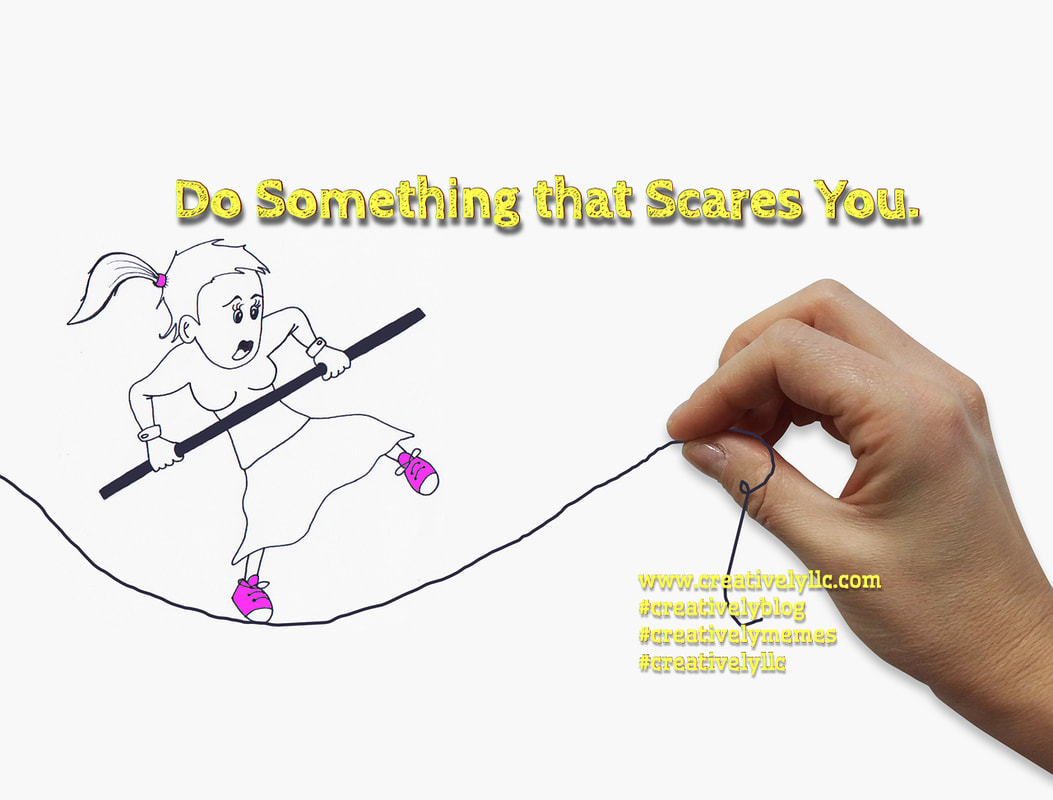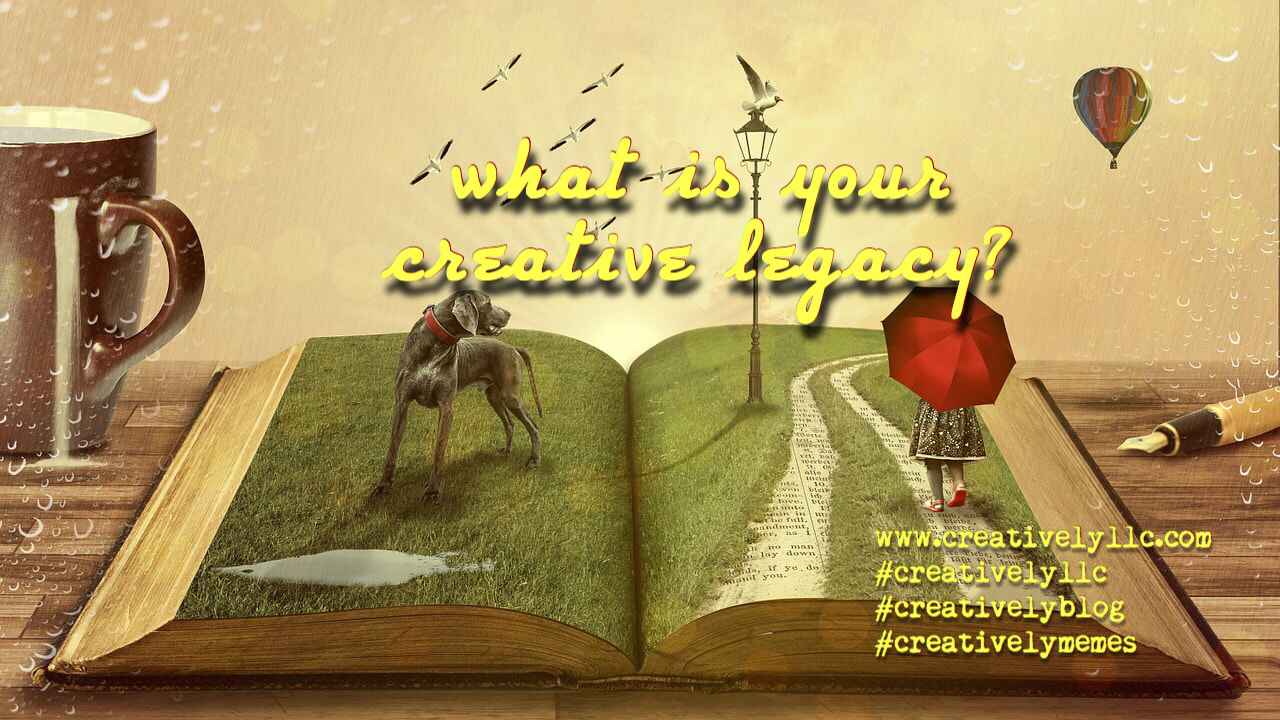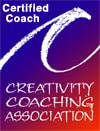|
Do something that scares you, every day.
Years ago, someone whose resiliency and peaceful lifestyle that I admired, gave me this advice. I did, like you might, balk at this advice: do what? Needless to say I spent time thinking about this then, and it is something I have reflected on since. Today it is advice I share with you. What scares you? In a psychological sense, what I am really asking you is, what are you avoiding? We all have defense mechanisms learned throughout our lives that protect us from perceived threats. The problem is, we change and our lives change, so “once a threat, always a threat” does not apply. What have you conditioned yourself to avoid, but are now doing yourself a disservice from outdated or expired fear responses? I will give you an example that frequently surfaces in session: finances. For most of us, the younger we are as adults, the less money we have, the more fearful we are about having enough money to meet all our needs (recall buying something in your 20s, then covering your eyes and singing “la la la” afterwards). However, and almost regardless of how our financial status does or doesn’t change over time, this is a stressor we are more equipped to handle with age. We are more capable of planning, problem solving, have more support, etc. Always, but most especially eventually, we are doing ourselves a disservice by avoiding making financial plans because it is stressful. It may always be stressful- but that does not mean our past ways of dealing with it (avoidance) is functional. Part of what I am intimating is distress tolerance should increase with age. We should be able to persevere and tackle something stressful or distasteful more effectively in our 30s than we did in our 20s. If this is not true for you, than something is preventing you from being able to grow and develop this muscle (but that is not what I want to talk about today). What I want to explore is the use of the cognitive/behavioral variety of therapies to build distress tolerance. The alphabet soup referring to the cognitive/behavioral focused therapies continues to grow: REBT, CBT, DBT and more. Essentially what these and many other approaches have in common, is using logic and cognition to moderate or even change emotional responses, giving us more room to make different decisions. Generally in introductions to these approaches you will be given a formula that looks like this: precipitating event leads to irrational/rational belief leads to emotional reaction leads to behavior. Most of these theories hinge upon impacting the irrational/rational belief to linearly impact the other parts of this cycle (emotions, behaviors). What I’m saying to you is, when something happens our initial response to it is largely conditioned based upon our experiences in life. We will believe what we do about it based on our past experiences and strong emotions are tied to this. Ultimately we make the decisions about resulting behaviors (be they conscious or subconscious) from this personal data. Let’s go back to the money example. We have a new expense we weren’t planning on. Based on a personal history of financial stress, we panic. Based on panic, we avoid. In this scenario the key factor is making the judgement that the expense is a threat. If we could train ourselves to perceive this event differently, we will behave differently about it. Of course it isn’t that simple- when the expense happens we will still panic- part of these responses become fairly hard-wired depending on how frequently they have been used- but we can activate our distress tolerance to stay with that feeling just long enough to consider an alternative explanation, resulting in a different feeling and different choice. I will say that again in a different way: if we face something we are afraid of, just for a moment, we create enough possibility to view that thing differently and have a different outcome. Remember, creative people, that your emotions can be more powerful than a sampling from the general population. This means understanding and breaking these patterns is simultaneously especially challenging and important for you. Are you tired of avoiding stressful situations that maybe you know aren’t really a threat? Do you find yourself more emotionally reactive than you would like? Do you feel controlled more by your emotional responses than you want to be? Maybe it’s time to come sit on my couch and talk about breaking the cycle. (C) 2018 Creatively, LLC Today’s topic is both important to us as human beings, and has another layer to creatives. I’m talking about our urge to leave our mark on the world: to change or impact life in a meaningful way. This urge can drive and motivate us, or cripple us with fear, self judgement and anxiety. There are several key times in life where we may be especially tuned in to and evaluating our sense of personal and creative legacy. This is where I want to tune our focus today. In early childhood during the beginnings of the growth of our self esteem, again in young adulthood as this sense of self experiences another surge of growth, again in mid life (the ever-famous “mid life crisis”) and finally in our golden years: these are the predicted times during which our thoughts about our legacies pique. If you find yourself currently in one of these stages, you can expect this to be on your mind. If you aren’t but weren’t satisfied with your development and answers to legacy issues in previous landmark stages, you may chronically carry worries about your legacy with you. Creative people are additionally especially prone to the weight of unanswered legacy questions and the need for impact. Part of the reason creative people are especially prone, is part of our personality. We crave sharing our unique vision with those around us, and want it to impact them in the way it has impacted us. We want our talent recognized and validated en masse. It is certainly normal to crave that. Creative arts are also inherently competitive- and as such we arrange ourselves in “best-worst” structures. The result is we only allow ourselves to embrace and own our creative identities if we are the “most” creative and impactful, as evidenced by our legacies (not good.) The idea of a legacy is certainly important: it gives meaning to what we do and drives us to create- even inspires us. But- legacy- as we typically know it- is a fallacy. I want to introduce to you the concept of “big L” vs “little l” legacy: Big L Legacy represents what we normally think when we to reference significant creative impact. Big L legacies are those that history has remembered, text books reference, and others revere, imitate and immortalize. The size of Big L Legacy is global. Little l legacy represents how we impact those we interact with personally. These are our individual, humanistic, organismic, direct, person-to-person, emotional interpersonal interactions. It extends to the community directly around us who know and experience us intimately. I think the problem here is clear: we are holding ourselves to big L Legacy and disregarding little l legacy. The problem is that big L Legacy is not decided by us. It is really decided by zeitgeist (unfamiliar with that concept? Do a little side research- it’s awesome). In other words, there were more than one DaVinci, Beethoven, or Einstein. The reason those that we revere with big L Legacies got that name, as opposed to the others of equal standing, is a variety of time/place/person specific variables that the individual that got lucky on the Legacy score could not control. Maybe I will dedicate a future post just to looking at creative zeitgeist. I submit to you- that since Legacy is decided by others- usually strangers- for us- that it is less valuable and certainly unhealthy to chase. It is truly moot, in a way. Little legacy is where I want you to redirect your urge to make an impact. The most important value we have is to those who know us intimately. On a personal level, our close friends, family and neighbors are those who are directly impacted by and therefore valuable in our lives- us to their lives and their lives to ours. Creatively, we may not be the most amazing global artist (which is also subjective and arguable what that even means), but we are the person at the place who shared what another person or group of people needed. You may want to dismiss this idea as “ok, sure, we all get trophies” mentality- this is not what I’m saying. I’m saying you are an important and necessary part of the fabric of your interpersonal and creative community. Your investment and time spent with the world directly around you leaves the mightiest impact you can possibly make. I understand this concept is counterintuitive and so I challenge you to challenge it. Do a little experiment or series of experiments. Spend more time on a relationship, in a local creative event or in your community. Watch how quickly and positively others around you respond. How grateful they are. How quickly you are integrated. How you begin to feel about yourself. After all, how many “great” creative people are on your own list of the most influential people in your life? How many people on that list are those that took the time to be present in your life, and that you spent precious minutes of your life with in return? Are you plagued by personal legacy fears and questions? Are you at one of the legacy milestones? Do you want to resolve one that has passed? I am here to help. (C) 2018 Creatively, LLC |
get more from The Creativity CoursesLiking educational topics and knowing what's hot in creativity? Creatively has online courses, with an interactive creative community, coaching sessions and more in the Creativity Courses. Want these blogposts in a newsletter? Subscribe here, and get a free gift. Cindy Cisnerosis a Creativity Coach, Creative Therapist and Professional Artist in Sykesville, Maryland. She is an expert straddling the realms of arts, creativity research, psychology, therapy, and coaching. She provides Online Creativity Counseling in Maryland and Virginia, and Online Creativity Coaching throughout the USA, Canada and the UK tailored for the discerning, imaginative, artistic, and neurodiverse. The information provided in this blog is from my own clinical experiences and training. It is intended to supplement your clinical care. Never make major life changes before consulting with your treatment team. If you are unsure of your safety or wellbeing, do not hesitate to get help immediately.
Archives
July 2024
|
|
Concierge Therapy for Creatives in Maryland
Creativity Coaching Worldwide including the USA, UK and Canada |
Telephone |
|



 RSS Feed
RSS Feed

